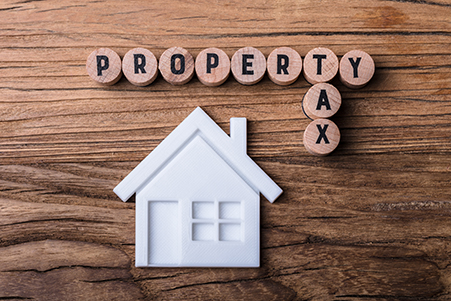As the old saying goes… “nothing is certain but death and taxes.” If taxes haven’t been on your mind already, then April’s arrival will bring them to the forefront.
Most state and local property taxes are deductible on your federal tax return. However, property taxes can also represent a big hit to your take-home income. What if you could lower your property taxes and, in the process, lower your mortgage payments? If your property has been over-assessed, you may have a case and could dispute your property taxes.
This tax season, Guardian Mortgage is describing how you may dispute your property taxes to help you save money.
Property Taxes Explained
Local governments charge property taxes on real property, such as real estate. Individual homeowners or corporations generally pay property tax bills twice a year. Tax deadlines and percentages depend on the home’s location.
Property taxes typically represent the largest source of revenue for local governments. The money collected goes toward expenses the county, city, town, or school district pays through taxes. This includes schools, infrastructure, emergency services, and more.
The local appraiser or assessor evaluates the value of each property and typically first determines its fair market value. The fair market value represents what someone would pay for the property. The home’s fair market value is then typically multiplied by the local assessment rate to determine the assessed value, and thus how much a property owner owes in taxes.
Many property owners pay their property taxes through an escrow account held by their mortgage company. The homeowner pays into the escrow account every month. Property tax bills are then sent to the mortgage company, which pays the property tax bills. The higher your property taxes, the higher your mortgage payment will be each month.
Why You Should Look Twice at Your Property Assessment
Your home’s fair market value is important for several reasons. First, it helps determine the assessed value used to calculate your property taxes. It also helps determine how much you could make on your property if you decide to sell. In this case, you want your home’s fair market and assessed value to both be as high as possible. The fair market value is typically the listing price for your home when you sell. If you plan to stay in your home, you want your property to appraise for less. This will lower your property tax bill.
Home prices rose at a rapid pace in 2021. The typical home gained $50,000 in value, according to NPR. With home prices rising, there is a chance your property taxes could increase as well. However, the National Taxpayers Union Foundation estimates that between 30 and 60 percent of taxable property in the United States is over-assessed. This means people are paying higher-than-necessary taxes on their homes.
Do you think you are paying more than you should in property taxes? The time may be right to dispute your property taxes. By successfully lowering your property value, your property taxes and home mortgage could decrease.
How to Dispute Your Property Taxes
Disputing your property taxes may sound daunting. However, it’s typically a very straightforward process. Follow the steps below to dispute your property taxes.
Step 1: Create or collect detailed records. When you have more extensive records, you are better positioned to win the dispute. Look back at your previous property assessments and the reasoning behind the numbers. Ensure that the assessment office included all of the correct information on the previous assessments. This includes square footage, number of bedrooms and bathrooms, etc. If an assessment contains incorrect information, you may have an easy appeal on your hands.
Step 2: Contact your local assessor. This likely means calling your county assessment or appraiser office and requesting an informal meeting. During the meeting, you will discuss discrepancies within the information you’ve found about your property.
Step 3: Find comparable properties. If your meeting is unsuccessful, it’s time to compare similar properties to determine their value. Real estate agents can help you with this step. Your neighbors may also share information about their home values. If you find that comparable properties are valued at less than yours, you may decide to file a formal appeal and dispute your property taxes.
Step 4: Make an appointment to appeal. Start by filling out an appeals application. This can be found on your county tax website. Pay any application fees and then begin preparing your appeal.
You may wish to hire an attorney or tax professional to represent you in the property tax appeals process. However, you can represent yourself. If you are well-prepared and thorough with your case, you have a chance to lower your property taxes.
As you prepare your appeal, gather the following types of information:
- Selling prices for recently sold comparable homes
- Photos of your property and estimates for repairs/upgrades
- Records of your home’s past property assessments
Remember, you’re trying to convince the county board that your home should be valued at less than what they’ve assessed. You have the burden of proof. Show them why the assessed value for your home is too high.
Due to the certainty of taxes, you may feel like there is nothing you can do to change your tax payments. However, as this article shows, you can appeal. If you think you have a case to lower your property taxes, you have a path for recourse and a fighting chance at winning your appeal.
For more information on property taxes, escrows, or your mortgage payment, contact the mortgage professionals at Guardian Mortgage.
CONTACT A LOAN EXPERT

